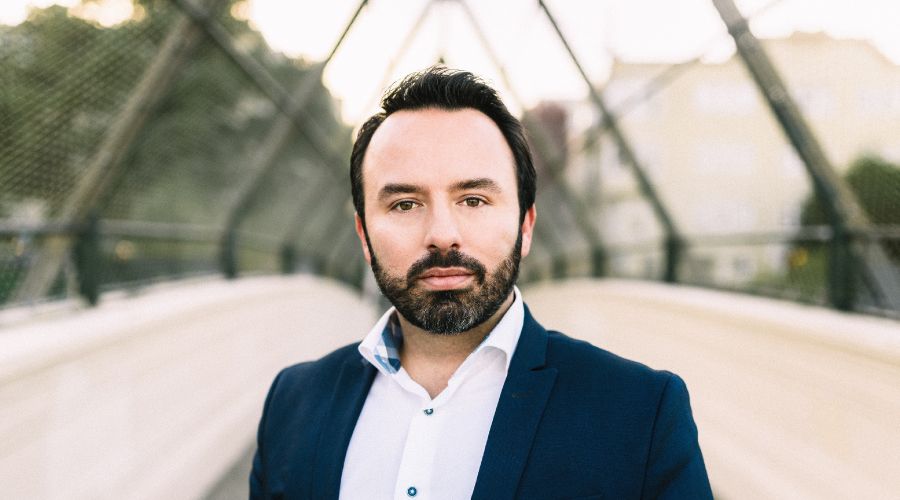In conversation with Sky Kurtz of the UAE's Pure Harvest

Pure Harvest Smart Farms is one of the first hydroponic farms in the Middle East region, growing tomatoes in a sensor-filled greenhouse. At the core of its technology is an Internet of things (IoT)-enabled form of agriculture, which monitors almost every aspect of a plant’s requirements and adjusts the climate management system in the greenhouse accordingly to ensure efficient use of water and to cut back on wastage.
Pure Harvest grows tomatoes for now, which are grown not in soil, but a coconut shaving solution without the need for fertilisers and pesticides. The company secured the region’s largest ever seed financing round in 2017 at $4.5 million and now supplies its tomatoes to several hypermarkets and supermarkets in the UAE with plans to expand to Saudi Arabia this year.
Before moving to Dubai, co-founder and chief executive officer Sky Kurtz worked in private equity in San Francisco.
Why did you become an entrepreneur?
I’m a late bloomer. I left a career as a private equity investor seeking to be closer to the businesses that I had invested in, but not knowing exactly why I wanted to. I was honestly afraid prior. I come from a family that has overcome extreme financial hardship and financial security is extremely important to me. It made the hurdle high for me to leave the safety and security of a well-paying job to enter the high-risk, high-reward world of entrepreneurship. I saw the excitement and several dramatic successes of my classmates from Stanford Business School and thought – why not me?
How did the idea for Pure Harvest come about?
I remember the day [my wife Kinsi and I] agreed I was going to begin to search for a business idea that would make a lasting change on the world if successful, versus simply being a money-making ploy. Serendipitously, around this time I met my co-founder Robert Kupstas who introduced me to the concept of what has become Pure Harvest Smart Farms.
We did a tremendous amount of work evaluating the technical and financial feasibility of the project including everything you’d expect – researching the regulatory environment, competition, cost structure, incumbent production technologies, market pricing dynamics, history of success and failure in comparable businesses worldwide, valuations etc.
What is the biggest sacrifice you’ve made in becoming an entrepreneur?
Time. Time with my wife and with my family. One of the unique things about leading a startup is the consequence of non-performance, you cannot hide and you cannot ‘turn it off’ as the company is a living thing with its own needs, many of which don’t align with when you’re available to meet them. It’s not easy and it requires constant sacrifices.
What was the typical reaction when you approached investors in the beginning?
Skepticism, disbelief. A combination of “how could someone with your background be pitching this?” to “wow, if everything you’re saying is true, how on earth hasn’t this been done before?”. IoT and hardware is wildly under-represented in the Middle East versus the web-enabled businesses and e-commerce. It was especially hard to pitch an asset intensive, hardware, agriculture – which was previously thought of as a government subsidised, messy industry – first of its kind startup that is onshore in the UAE. The complexity cannot be understated, raising the money took time and a lot of work, but we got through and raised the largest ever seed round in the Middle East. It was a big moment.
Something unique about my path to entrepreneurship is that I had both training and experience in investing first. I had to be convinced to invest my own money before I’d take a DIME of someone else’s money to risk in my venture. It’s a fundamental belief of mine and a core value.
How did you feel when you first tasted Pure Harvest’s tomatoes?
Relieved! I believed in it so much but until you put one in your mouth and taste the sweetness, the complexity, until that moment, it was all just power point slides and promises.
What will you industry look like in the next decade?
It will be much bigger. Controlled-environment agriculture is an important piece of the food solution for the challenge we will face to feed 9.5-10 billion people by 2050. It is growing worldwide and as innovators like us demonstrate, it’s possible anywhere and is resource-efficient. It will only accelerate and expand, it’s an exciting place to be.


